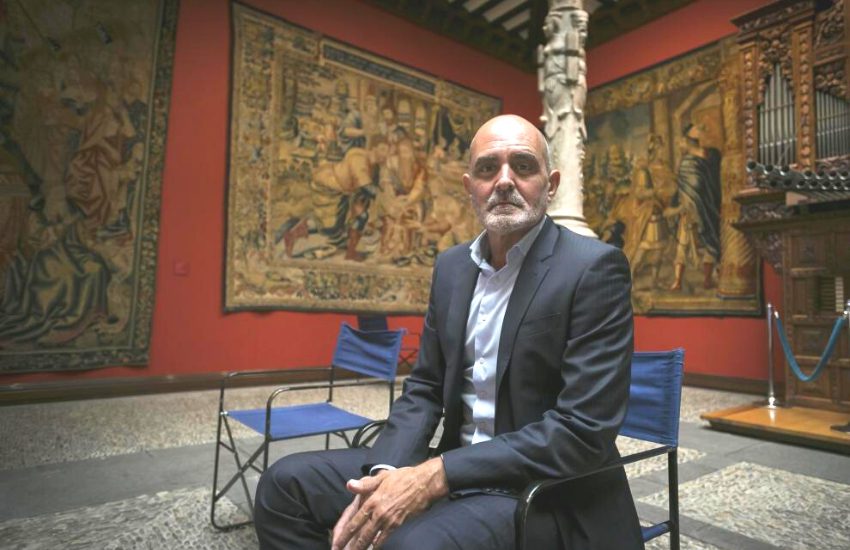He was in Zaragoza at a conference on the values of sport, Obra Social and financial education. Savings banks became banks, but they continue to work on social welfare projects.
To what extent?
Savings banks had many years of experience in accompanying society with actions beyond the financial sphere, with the aim of providing assistance to the most disadvantaged and guaranteeing social cohesion. During the pandemic this has been more evident than ever. The crisis has been tremendously inequitable and the most vulnerable groups, those with the lowest incomes, unemployed young people, migrants, have been assisted through Obra Social. I therefore believe that Obra Social plays an important role and will continue to do so, as it did during the pandemic. It has been a major private social investor in this field. The former savings banks have mobilised €3.8 billion in the last five years and €772 million in 2020.
Is the difference between CECA entities and those in the Spanish Banking Association (AEB) still noticeable?
Obra Social is at the origin of savings banks and is still there. As a result of the law on savings banks and banking institutions, the activity of the former savings banks was split into two: on the one hand, we have the banking business, which engages in financial activity, and on the other hand, we have the foundations, which develop the Obra Social. This is a distinguishing feature of CECA member entities.
How are CECA's actions coordinated with the AEB?
There are now two banking associations. At CECA we work very closely with the AEB on a daily basis, we present joint initiatives. A very significant example is what we have managed to do together during the pandemic, responding with enormous forcefulness, in a way that has never been done before. This has made it possible, for example, for us to mobilise a much larger amount of money than the European funds that will arrive over the next six years. Therefore, the relationship is excellent, we share many points of view, but it is true that there are certain differential elements, such as the one we mentioned regarding Obra Social.
You mentioned the coordination between financial institutions during the pandemic. This shows that banking has behaved very differently when compared to the previous economic crisis.
When this crisis commenced banks were in a situation that had nothing to do with the previous scenario, in that they were financially sound, with different governance, and this has meant that entities were in a position to help SMEs, the self-employed, protecting companies, helping families. In the end, banking has acted as a dam to contain the crisis, supporting companies and the most vulnerable groups. The question is, what would have happened if banks had not been there to guarantee payments, to guarantee technological infrastructures so that we could all work from home?
What is the state of banking after the economic crisis caused by covid? Has it emerged stronger?
Public opinion has been very positive, with a score of 8 out of 10, according to GAD 3. However, banks face other challenges, including operating with negative interest rates for such a long period of time. Another issue is that banks are being forced to digitalise in order to adapt to customer demands and to continue to innovate. There is also another challenge, namely 'fintech' companies, which operate in the financial sector and are not regulated; therefore we are not competing on a level playing field. These are, broadly speaking, the challenges, and from there we have to ask ourselves where banking is headed.
And where is it heading?
Towards greater digitalisation, in fact in some institutions the number of digital customers already exceeds 80%, which is a very high figure. In any case, we see digitalisation as a driver for innovation. Banking must also adapt to all aspects of customer service, which was traditionally physical and focused on the product, whereas now it is more about service. This is a very different value-added service to what used to be offered in the past, that is, a service related to transactions, which today is done in a matter of seconds. Ultimately, banking has to strive to renew itself on a daily basis. It is true that Spanish banks are above the European average in terms of efficiency, but there is still a long way to go, also through the reduction of installed capacity, which, as a result of this digitalisation, it is becoming clear that we are oversized. Hence the somewhat unpopular restructuring processes. Workforce consolidation is not a new phenomenon, but technology is driving us to gain efficiency and profitability. The real challenge lies in transnational mergers, which have been talked about for a long time, but have not come to fruition. In the domestic market, the level of bank concentration is higher compared to other countries and with higher efficiency.













